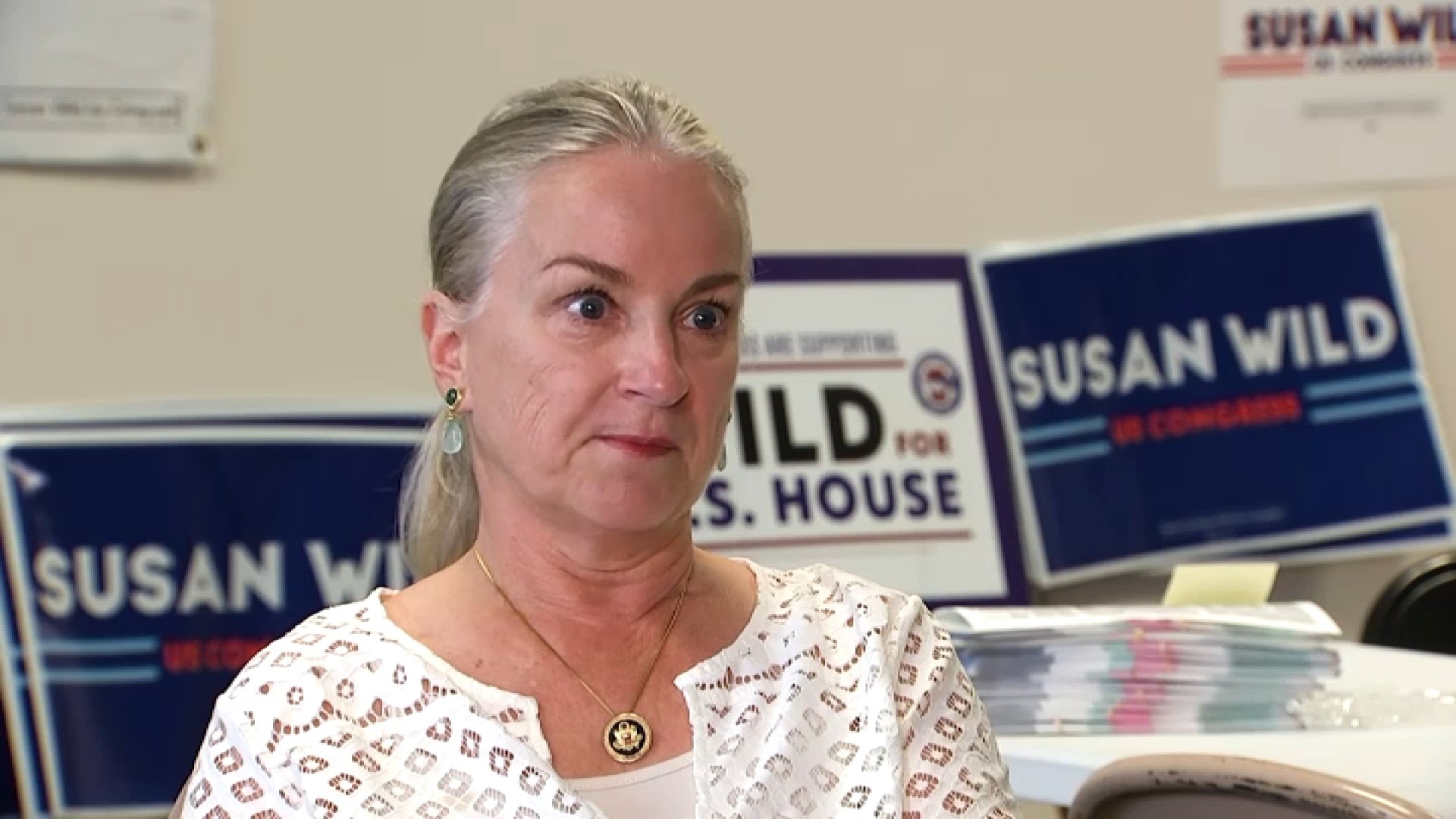A Pennsylvania House committee that’s considering impeachment proceedings against District Attorney Larry Krasner is now pushing a bill that calls for two new audits into Krasner’s office.
The House’s five-member Select Committee on Restoring Law and Order was established in June to study gun violence in Philadelphia, evaluate Krasner’s job performance and make “recommendations for removal from office or other appropriate discipline, including impeachment.”
During a 45-minute hearing on Tuesday, the committee’s chairman Rep. John Lawrence (R-Chester/Lancaster) said he wanted the state’s Auditor General and the Legislative Budget and Finance Committee to each conduct audits of the Philadelphia District Attorney’s Office’s use of state funds. The audits would also look into the money spent by the Gun Violence Task Force, a partnership between Krasner, Philadelphia Police and the state Attorney General focusing on gun violence.
“This is an area that we’ve identified that needs additional attention,” Lawrence said.
Get top local stories in Philly delivered to you every morning. Sign up for NBC Philadelphia's News Headlines newsletter.
During Tuesday’s hearing, representatives, mostly from Philadelphia, asked Lawrence about why he and the committee believe there is a need for an audit on top of the existing investigation.
“Proposals for these audits are usually made when an issue, a specific issue, has been identified that causes concern,” Rep. Jared Solomon (D-Philadelphia) said.
After several rounds of questioning, Lawrence dropped an apparent bombshell.
Politics
“It was suggested to the committee to review this, to be candid with you, by the Attorney General of the Commonwealth,” Lawrence said.
“Okay,” Solomon replied. “Can you elaborate?”
“I’m going to leave it at that,” Lawrence said.
After the hearing, a spokesperson denied that the Attorney General’s Office made any request for an audit.
“The Office of Attorney General has not made any request for an audit of the Gun Violence Task Force,” a spokesperson wrote. “The statement made at today’s hearing is unequivocally false.”
Lawrence later clarified in a statement that the Attorney General’s Office provided information to the committee as part of its investigation into the District Attorney’s Office.
“To be clear, the Attorney General did not request an audit but their participation in the investigation led, in part, to the investigation of HR 239,” Lawrence wrote.
HR 239 is the resolution requesting the audit, which was voted favorably out of committee. The full House is expected to vote on the audit on Wednesday.
In response to Tuesday’s vote, Krasner defended the work of the gun violence task force and referred to the committee’s ongoing investigation as a political stunt.
A spokesperson for the Auditor General told NBC10, “we carefully consider all audit requests and will do the same with this one.”
Republicans have hammered on crime as a campaign issue in Philadelphia this year and focused criticism on Krasner. A committee lawyer on Saturday asked Krasner to provide sworn testimony behind closed doors on Friday, but talks broke down over the panel’s insistence that his appearance be in secret, and came to an impasse when he said he would do it if he could record it, Krasner said.
“Their answer was ‘No, you get no record of what we asked you and what you said. We get it,’” Krasner told reporters.
Krasner said the committee’s work was part of a Republican effort to blame cities for a wider national gun violence problem that is also felt in the state’s rural, Republican majority counties.
Democrats have argued that Republicans have not moved against GOP district attorneys with recent criminal charges or convictions, and that efforts to reduce gun violence have been blocked in the Legislature. Krasner said those proposals include universal background checks to buy guns and ammo, a ban on so-called ghost guns and “deep and meaningful investments in prevention.”
The Pennsylvania House of Representatives rarely uses its power to impeach public officials. The removal process requires a House majority vote, followed by trial in the Senate and a two-thirds vote. It was most recently used successfully against Supreme Court Justice Rolf Larsen nearly three decades ago.



